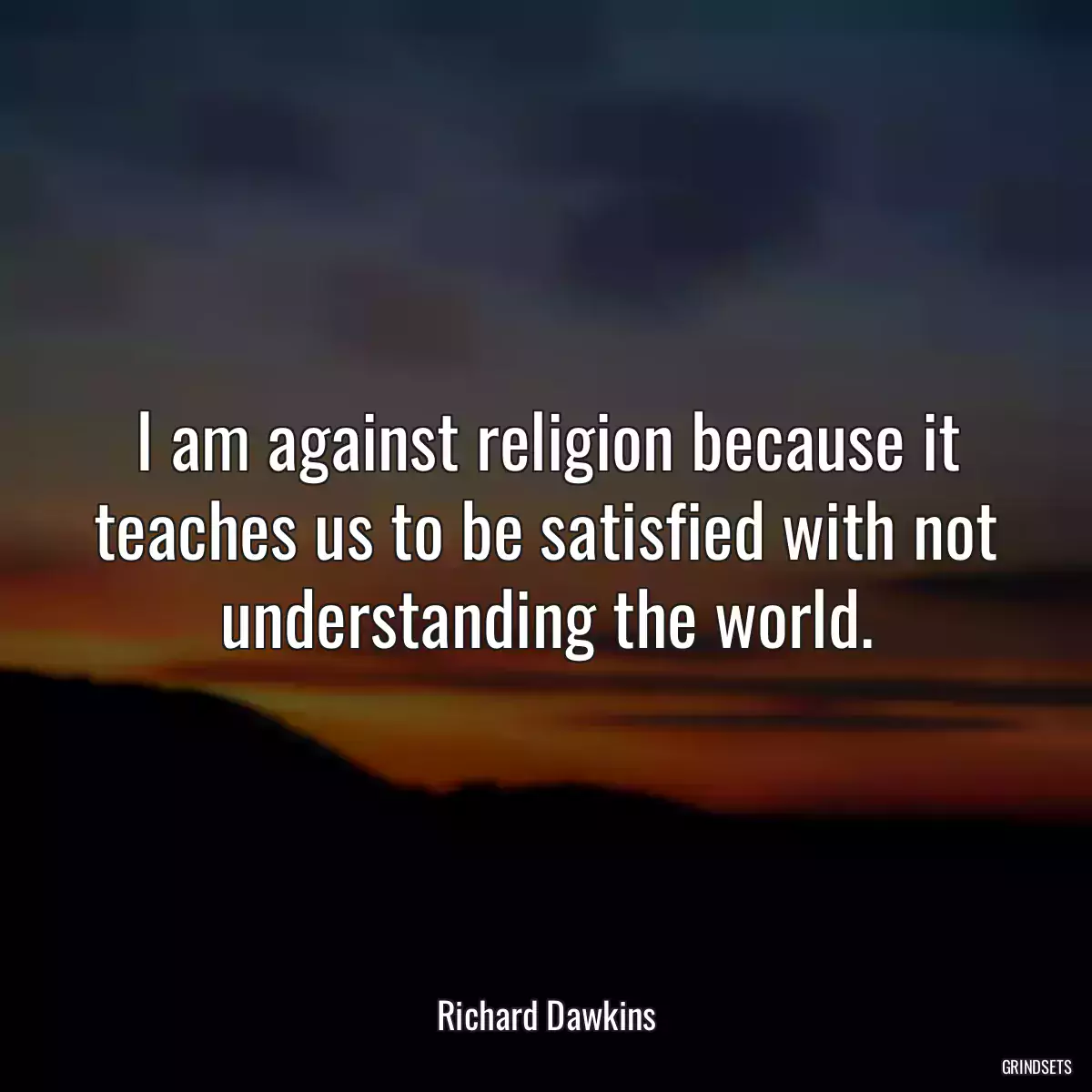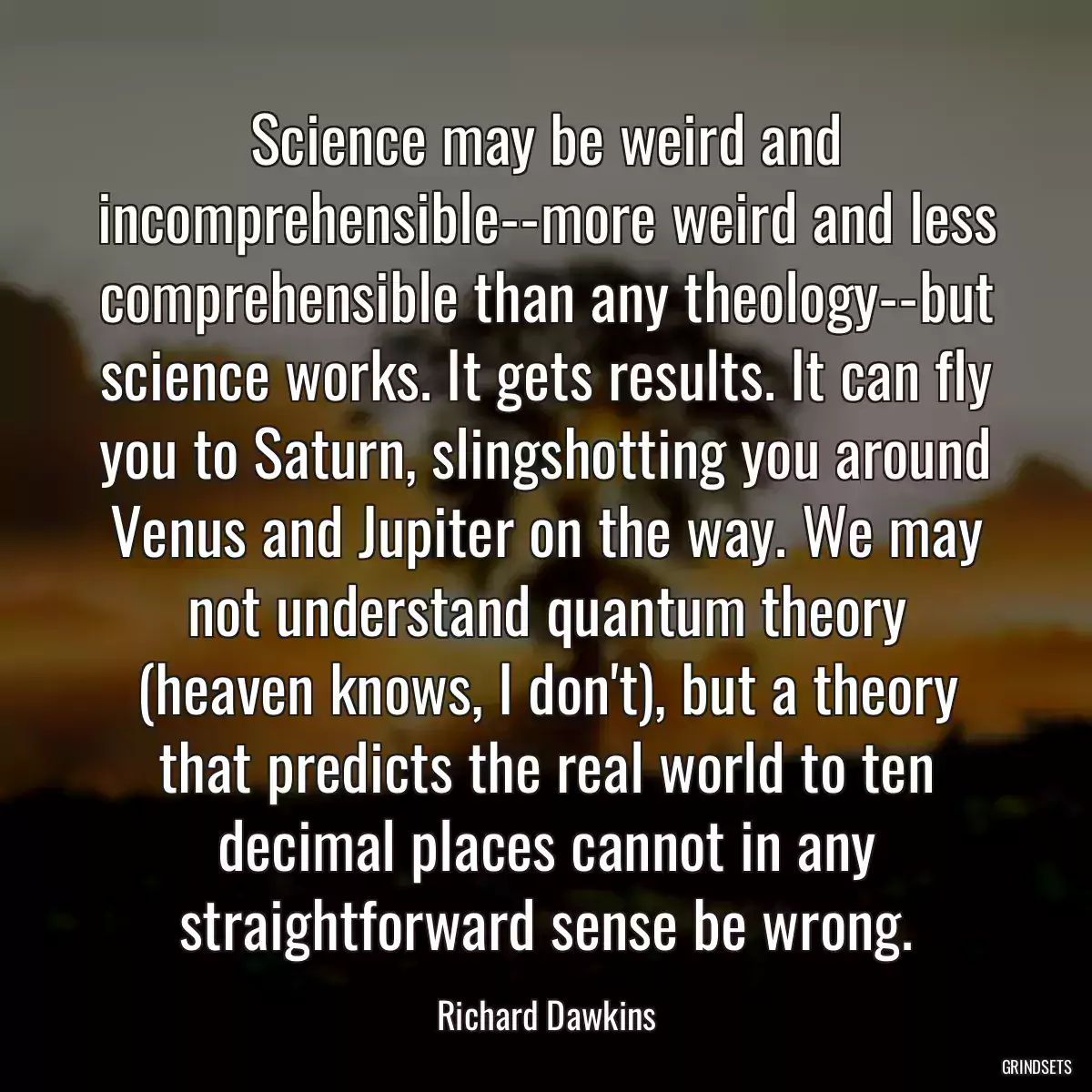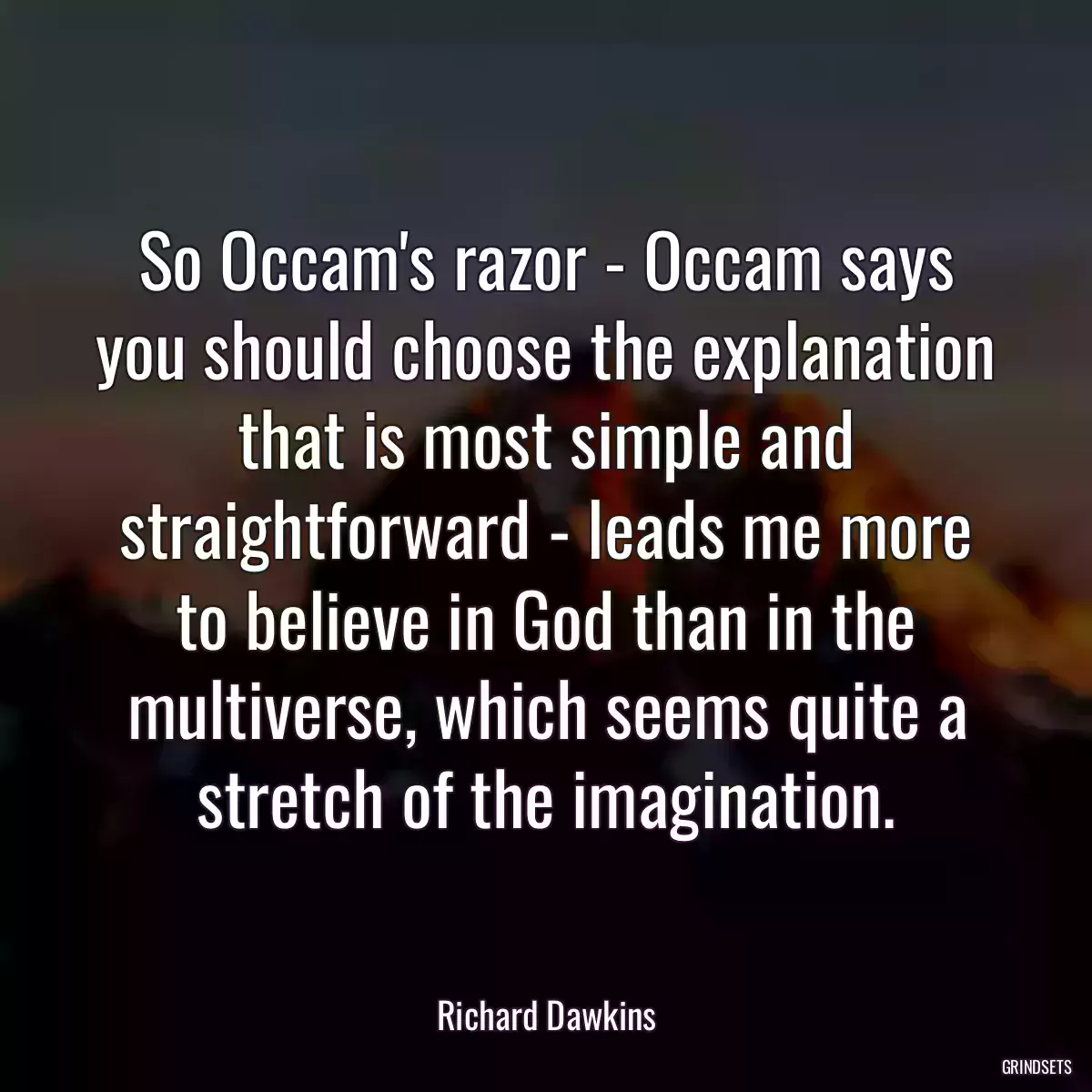
Quotes Richard Dawkins - page 5
Find dozens of Richard Dawkins with images to copy and share.

Not only is science corrosive to religion, but religion is corrosive to science. It teaches people to be satisfied with trivial non-explanations and blinds them to the wonderful real explanations that we have within our grasp.
There does seem to be a sense in which physics has gone beyond what human intuition can understand. We shouldn't be too surprised about that because we're evolved to understand things that move at a medium pace at a medium scale. We can't cope with the very tiny scale of quantum physics or the very large scale of relativity.
Does religion fill a much needed gap? It is often said that there is a God-shaped gap in the brain which needs to be filled: we have a psychological need for God -- imaginary friend, father, big brother, confessor, confidant -- and the need has to be satisfied whether God really exists or not. But could it be that God clutters up a gap that we'd be better off filling with something else? Science, perhaps? Art? Human friendship? Humanism? Love of this life in the real world, giving no credence to other lives beyond the grave?
You may also like
Religion teaches you to be satisfied with nonanswers. It’s a sort of crime against childhood.
My untidy habits drive me to follow the slash-and-burn principle. Work on a virgin table until the mess becomes unbearable, then move on to a clean table in a clean room - or, on a beautiful summer day like this, one of the five tables dotted around the garden. Trash that table and move on again.
And the beauty of the anthropic principle is that it tells us, against all intuition, that a chemical model need only predict that life will arise on one planet in a billion billion to give us a good and entirely satisfying explanation for the presence of life here.
I am very comfortable with the idea that we can override biology with free will.
Commonsense lets us down, because commonsense evolved in a world where nothing moves very fast, and nothing is very small or very large; the mundane world of the familiar.

Science may be weird and incomprehensible--more weird and less comprehensible than any theology--but science works. It gets results. It can fly you to Saturn, slingshotting you around Venus and Jupiter on the way. We may not understand quantum theory (heaven knows, I don't), but a theory that predicts the real world to ten decimal places cannot in any straightforward sense be wrong.
I would like to find a way in which people in Saudi Arabia could learn that they can be something other than a Muslim. Some people may not realize this. Of course, there is the problem that you can get in trouble or get stoned.
Some people find clarity threatening. They like muddle, confusion, obscurity. So when somebody does no more than speak clearly it sounds threatening.
Granted, we may try to help our own family members because they share our DNA. Or help someone else in expectation that they will help us later. But when you look at what we admire as the most generous manifestations of altruism, they are not based on kin selection or reciprocity. An extreme example might be Oskar Schindler risking his life to save more than a thousand Jews from the gas chambers. That's the opposite of saving his genes.
If we are too friendly to nice, decent bishops, we run the risk of buying into the fiction that there's something virtuous about believing things because of faith rather than because of evidence. We run the risk of betraying scientific enlightenment.
Evil…doesn’t mean doing things that have bad consequences for people. It means private thoughts and actions that are not to the Christian majority’s private liking.
Certainly science should continue to see whether we can find evidence for multiverses that might explain why our own universe seems to be so finely tuned.
The other way is the multiverse way. That says that maybe the universe we are in is one of a very large number of universes. The vast majority will not contain life because they have the wrong gravitational constant or the wrong this constant or that constant. But as the number of universes climbs, the odds mount that a tiny minority of universes will have the right fine-tuning.
Some physicists solve that problem of the necessity of finely tuned physical constants ... by invoking the anthropic principle, saying, well, here we are, we exist, we have to be in the kind of universe capable of giving rise to us. That in itself is, I think, unsatisfying, and as John Lennox rightly says, some physicists solve that by the multiverse idea-the idea that our universe is just one of many universes.
You may also like

Barring a theoretical resolution, which I think is unlikely, you either have to say there are zillions of parallel universes out there that we can't observe at present or you have to say there was a plan. I actually find the argument of the existence of a God who did the planning more compelling than the bubbling of all these multiverses.